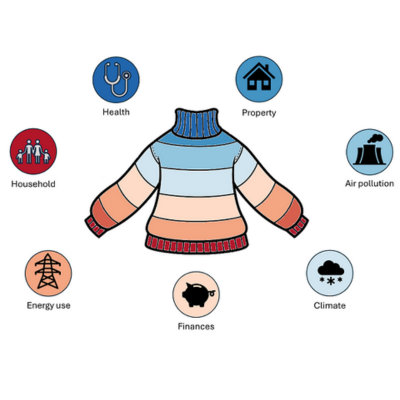Last week we participated in the UK Data Service #DataImpact2016 event. We listened to key data innovators from Scotland who shared their knowledge and vision around data, the future of data and how data can and will impact our lives, socio-economic and political environment in the future. Read our summary of the event in the form of 17 key takeaway messages.

UK Data Service organised a #DataImpact event with key data innovators in Scotland who shared their knowledge and vision around data, the future of data and how data can and will impact our lives and our socio-economic and political environments in the future.
Great speakers at #DataImpact2016 tonight @HallidayRoger @GillianDoc @billroberts @vthakuriah @matthewwoollard pic.twitter.com/DROOiYK4gs
— UKDataService (@UKDataService) October 13, 2016
At UrbanTide we are all about data, specifically we are about open data, thus we were delighted to listen to and mingle with data and open data enthusiasts during the Data Impact event.
Measuring the impact of data is challenging; the definition of impact is demonstrable contribution to society and economy. Impact is multilayered with instrumental impact, conceptual impact, capacity building and skill development.
#1 Step up so that the re-use of data is built into the data collection process from the beginning.
#DataImpact2016 @matthewwoollard plan for data reuse at its creation— UKDataService (@UKDataService) October 13, 2016
#2 Start looking at predictive analysis and start linking data together across data services - free the data from the silos!
Roger Halliday: use of hospital service #data accurately predicted 3/4 ppl who could benefit from preventative care #DataImpact2016
— UBDC (@UrbanBigData) October 13, 2016
#3 Maximise data's impact:
- Data needs to be accessible, shareable and of good quality
- People need to trust the way it is handled
- We need skills to use the data
- Public sector organisations need to adopt more data-driven business processes and go from overly cautious to securely sharing
#4 Having the right skills is key in bringing insights to the community and unlocking the potential of data.
#5 FoI should not be about the right to ask but the right to know, however the open data journey is often hindered by a hugely complicated legislative framework.
The amazing Rosemary Agnew FoI should follow right to know not right to ask #DataImpact2016
— UKDS Impact (@UKDSImpact) October 13, 2016
Rosemary Agnew: look beyond the borders of your own org & build links to really maximise #impact! #Dataimpact2016
— UBDC (@UrbanBigData) October 13, 2016
#6 Often when public sector leaders ask what the right data is to publish, they don’t understand that it is not about tech it is about business.
#7 Your data will never be perfect, so just start where you are.
"Your data will never be perfect. Just start where you are" @GillianDoc #dataimpact2016
— Kathryn Ellaway (@KathrynEllaway) October 13, 2016
#8 Soon data will be moved out of the silos and different data will be brought together to produce refined data structures.
"It's not about the data, it's about how you use it" - Des McNulty #bemoreefficient #dataimpact2016
— Kathryn Ellaway (@KathrynEllaway) October 13, 2016
Real time data can provide an exciting opportunity to inform policy making @desmcnulty #dataimpact2016
— UKDataService (@UKDataService) October 13, 2016
#9 The data industry is still a cottage industry. Generally, highly skilled analysts spend 80% of their time gathering data. The data value chain needs to be industrialised and moved towards automation and standardisation with upstream processes improved.
"Talented analysts spend far too much of their time munging data - more effort needs to be put into standardisation upstream" #DataImpact2016
— Liam Cavin, October 13, 2016
#10 Main challenges of data:
- Validity of data
- Biases, propagation and error
- Data quality issues of the future
#11 Data is not the answer to everything.
#12 The data pyramid: big data at the bottom > big data analytics > impact of the data at the top >> these need to be linked up and issues need to be addressed.
#13 Trust in the use and reuse of data are difficult topics. It is difficult to define and it is multilayered with a system of laws, technological solutions etc. all playing a role. Trust is not just about ‘trust’.
Bill Roberts: Lack of standardisation a key challenge creating inefficiencies for #data scientists. Let's industrialise! #dataimpact2016
— UBDC (@UrbanBigData) October 13, 2016
#14 Data awareness in Scotland is high: 85% of people know they have a right to ask (according to a recent poll by the Office of Information Commissioner) and 70% say access to information gives them more confidence.
Consumers realise sharing their data, gets them better service #education #dataimpact2016
— Kathryn Ellaway (@KathrynEllaway) October 13, 2016
#15 There is good reason to discuss re-purposing data instead of just reusing it.
#16 The Re-use of Public Sector Information Regulations 2015 says that anything that’s not personal and is accessible involves an automatic right to repurpose the data: create anonymised data to reuse more widely.
#DataImpact2016 panel: Public bodies should aim to anonymise #data as much as possible to allow for legal reuse under 2015 regulations
— UBDC (@UrbanBigData) October 13, 2016
#17 Reuse of personal data is about ownership, control and most importantly consent, which gives confidence and builds trust by giving individuals the right to control their data simply by asking them to opt-in to certain data reuse processes when registering.
Remember ethics on personal data - trust diminishes when public perceive loss of control, consent & ownership #dataimpact2016
— Kathryn Ellaway (@KathrynEllaway) October 13, 2016






